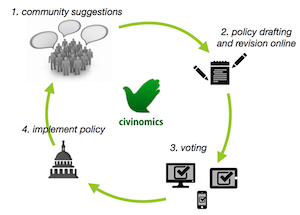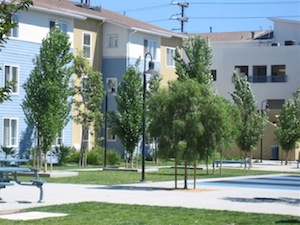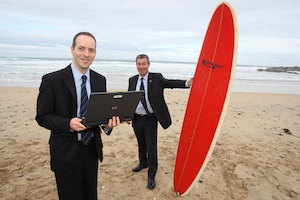Civinomics launches platform for cooler, smarter conversations about hot button issues

Civil discussion about community issues is the goal of a start-up launched last night in Santa Cruz, California. Civinomics is a platform for online workshops and in-person polling, aimed at engaging a wider segment of the public in conversations about local issues and ideas. Where ever those might be.
“It represents the evolution of social media into civic media,” said Chris Neklason, the company’s product management guru and the co-founder of Cruzio, an independent ISP and the host of the ribbon cutting event.… More









